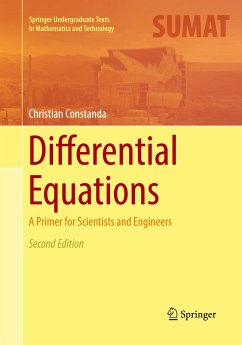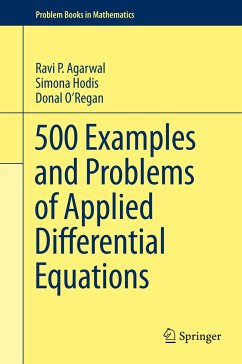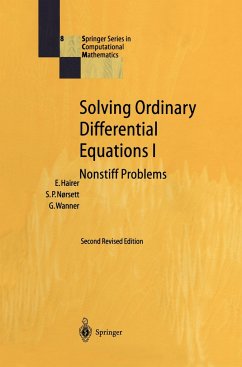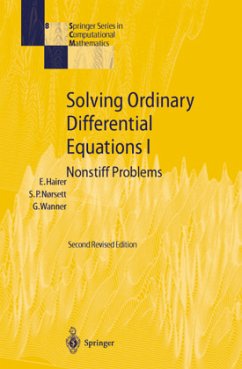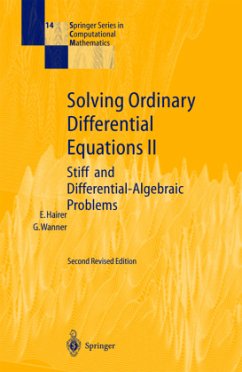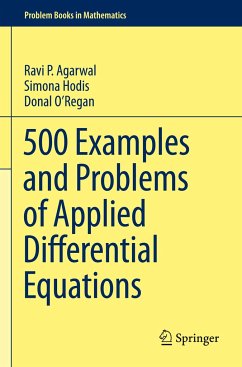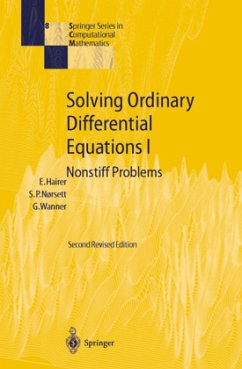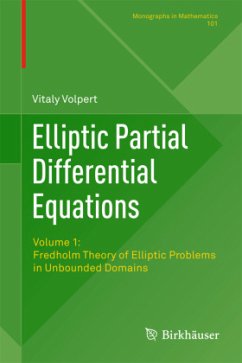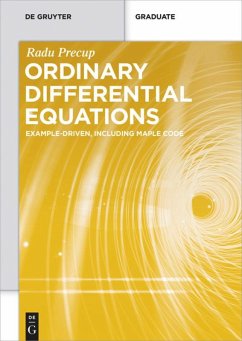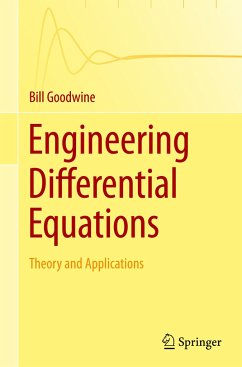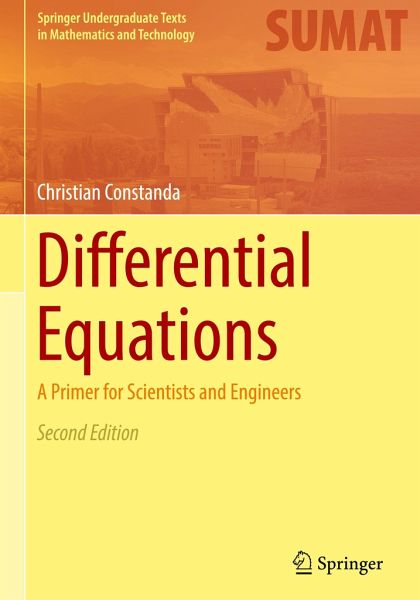
Differential Equations
A Primer for Scientists and Engineers
Versandkostenfrei!
Versandfertig in 6-10 Tagen
46,99 €
inkl. MwSt.
Weitere Ausgaben:

PAYBACK Punkte
23 °P sammeln!
This textbook is designed with the needs of today's student in mind. It is the ideal textbook for a first course in elementary differential equations for future engineers and scientists, including mathematicians. This book is accessible to anyone who has a basic knowledge of precalculus algebra and differential and integral calculus. Its carefully crafted text adopts a concise, simple, no-frills approach to differential equations, which helps students acquire a solid experience in many classical solution techniques. With a lighter accent on the physical interpretation of the results, a more ma...
This textbook is designed with the needs of today's student in mind. It is the ideal textbook for a first course in elementary differential equations for future engineers and scientists, including mathematicians. This book is accessible to anyone who has a basic knowledge of precalculus algebra and differential and integral calculus. Its carefully crafted text adopts a concise, simple, no-frills approach to differential equations, which helps students acquire a solid experience in many classical solution techniques. With a lighter accent on the physical interpretation of the results, a more manageable page count than comparable texts, a highly readable style, and over 1000 exercises designed to be solved without a calculating device, this book emphasizes the understanding and practice of essential topics in a succinct yet fully rigorous fashion. Apart from several other enhancements, the second edition contains one new chapter on numerical methods of solution.
The bookformally splits the "pure" and "applied" parts of the contents by placing the discussion of selected mathematical models in separate chapters. At the end of most of the 246 worked examples, the author provides the commands in Mathematica® for verifying the results. The book can be used independently by the average student to learn the fundamentals of the subject, while those interested in pursuing more advanced material can regard it as an easily taken first step on the way to the next level. Additionally, practitioners who encounter differential equations in their professional work will find this text to be a convenient source of reference.
The bookformally splits the "pure" and "applied" parts of the contents by placing the discussion of selected mathematical models in separate chapters. At the end of most of the 246 worked examples, the author provides the commands in Mathematica® for verifying the results. The book can be used independently by the average student to learn the fundamentals of the subject, while those interested in pursuing more advanced material can regard it as an easily taken first step on the way to the next level. Additionally, practitioners who encounter differential equations in their professional work will find this text to be a convenient source of reference.



